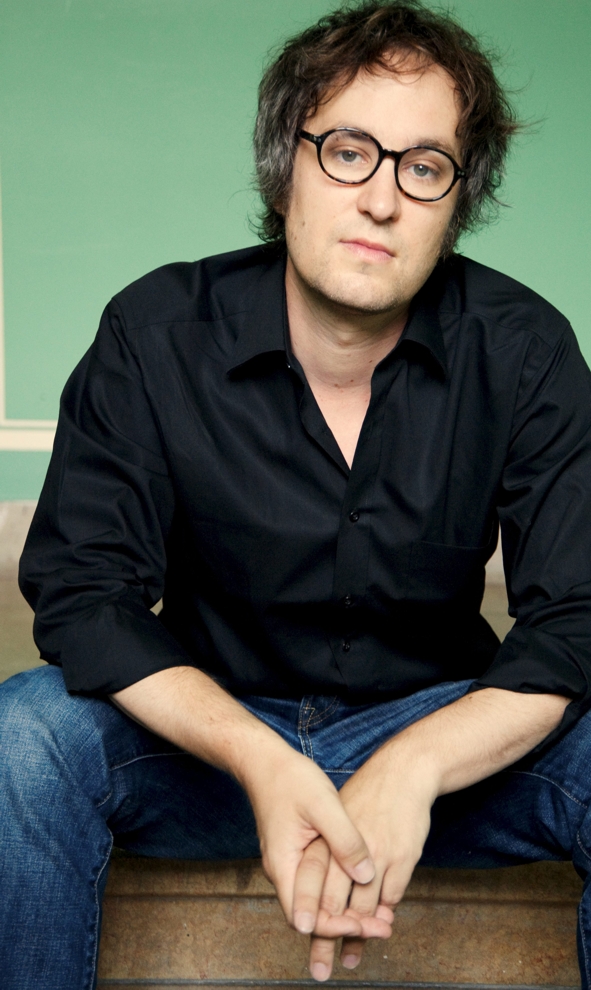
We are excited to premiere a brand new work by Hans Thomalla. Come hear Capriccio on March 9th! Read what Talea’s Artistic Director, Anthony Cheung, and Hans had to say about it recently.
AC: Many of your works reference historical genres pieces of the past, particularly the early 19th Century. Titles such as “Character pieces,” “Musical moments,” “Album-leaf,” and now with this new piece, “Capriccio,” are but a few examples. What is your relationship to these types of genres? Why do you reference them and what is specifically attractive to you about the early Romantics?
HT: Just as much as it means creating acoustic realities, composing for me means to find out about the musical reality that surrounds me, about the numerous fragments from musical languages that over the years have accumulated into something like a “vocabulary”. Romantic musical gestures, expressions, and forms are a major part of that layering of references (not least because of their dominant presence in the classical music industry, and – at least during the time I grew up – in music for film and television, which because of its connection to concrete narratives so much coins our concepts of what musical figures “say”). My relationship to these materials is one of alienation – it is not “my” musical language – and at the same time one of intense attraction and curiosity. The referential figures are almost always eventually destroyed in my music, though: their dissection into their acoustic elements makes place for a different acoustic reality.
AC: Could you tell us about “Capriccio,” and how it fits into your output as a whole?
HT: I don’t really think about my music as a “whole”. Each of the pieces lives its own life, I hope. There are some traces to other recent works, though: the interest in melody, although one that is not predefined by scales and cadential gravitation, but by sudden linear relations between different materials; the transformation from traditional harmonies into multiphonics and vice versa. “Capriccio” is the attempt to follow the path of a melody that starts out as a rather rigid declination of scales (the concept of a technical virtuosity that has been so much part of the genre “Capriccio”), and that increasingly carries along structural “dirt” – multiphonics, driftwood of major and minor chords, spectral blossoming in the strings, all kinds of acoustic filters; and then eventually follows its own constantly re-charted navigation. “Capriccio” is also a genre of lightness, and I was curious to investigate a sound-world that is literally agravic, where all sounds are more and more airy, flautando, lifting the bow from the string and the mouth from the read, to create sounds that have almost lifted themselves up from any acoustic grounds.
AC: Tell us about “Fremd,” your recent opera that was premiered last year at the Stuttgart Opera.
HT: “Fremd” was a quite exhausting and intensive project – the second run of performances is actually going on at the very moment in Stuttgart, and I plan to see one of the last shows and participate in a discussion with the audience. It is the story of Medea and the Argonauts, which I read as an encounter of strange worlds (fremd means strange in German). It was the attempt to “tell a story” on the stage, without giving up one of the most exciting aspects of contemporary music: its liberation from any kind of system of reference, its insistence to be heard as sound just as much as sign. The struggle between Medea and the rationalistic Greeks is partially just that: the struggle of Medea’s concept of sound (and with that of nature in general) that is essentially “free”, and that of the Argonauts trying to rationalize acoustic experience and expression. It’s a “big” piece – large orchestra (partially placed around the audience), choir, soloists and live electronics. I wrote stage music already as a high school student, and later in college I wrote music for the Frankfurt Theater. After my undergraduate studies I worked at the Stuttgart opera company from 1999-2002 as a dramaturge – so I think that it is a field to which I was always attracted (and the success of “fremd” made me start thinking about the next opera-project already).
AC: You write that in order for contemporary music to be meaningful, it must examine the historical and rhetorical necessities of sounds and their specific uses, instead of relying on a repertoire of known gestures. Is it possible to create in a language without these references, and is that a conscious goal of yours at all times?
HT: I don’t think it’s possible to write music without any of these references, but I am interested in music that truly examines them to the core, transforms them, dissects them, and sometimes violently destroys them. I think there is nothing as boring in New Music as musical language, that in every moment is on stable ground. Whatever that ground is (neo-romantic expressive stereotypes; the never ending repertoire of minimalist- or film-music-idioms; any kind of post-serial “academic” syntax) – music that does not at times shake its own foundations, that actively deconstructs the so comfortably inherited language, eventually becomes meaningless, I think.
